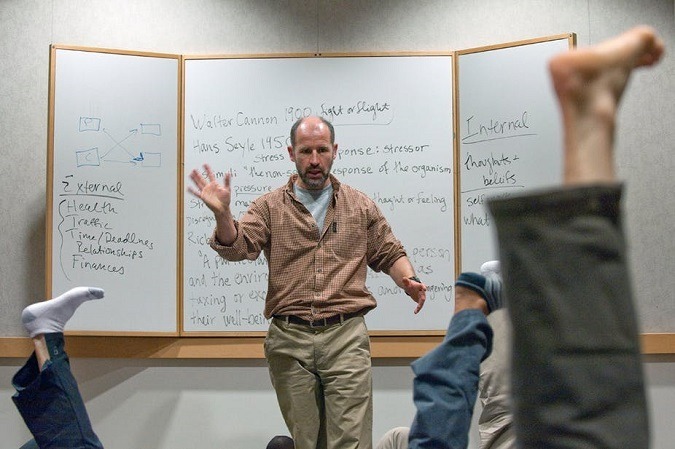Growing research aims at helping cancer patients in distress access most-likely-to-help self-care options, from Mindfulness training to Web-based cognitive behavioral therapy (CBT)

Credit: UCIrvine/flickr , CC BY-NC-ND
___
Mindfulness in cancer treatment: time to stop and think (The Conversation):
“Breathe deeply and focus on the moment: mindfulness now appears everywhere as a technique to improve well-being, including in health care.
Mindfulness training is often suggested for cancer patients to reduce high levels of anxiety and distress associated with diagnosis, treatment and anticipation of possible disease recurrence. But two questions persist: does mindfulness work and, if so, for whom? …
Mindfulness-based approaches have been shown to be helpful for women with breast cancer. It is not clear why mindfulness-based cognitive therapy did not produce measurable benefits for the men in this study. We speculate the acceptability and usefulness of mindfulness may be strongly influenced by contextual issues, such as gender, age, education, and perhaps even the specific nature of the illness challenge.”
____________________________________________________
New study showing much promise to help both male and female cancer patients: Web-Delivered Cognitive Behavioral Therapy for Distressed Cancer Patients: Randomized Controlled Trial (Journal of Medical Internet Research).
From the abstract:
- Background: Web-based interventions present a potentially cost-effective approach to supporting self-management for cancer patients; however, further evidence for acceptability and effectiveness is needed.
- Objective: The goal of our research was to assess the effectiveness of an individualized Web-based cognitive behavioral therapy (CBT) intervention on improving psychological and quality of life outcomes in cancer patients with elevated psychological distress.
- Methods: A total of 163 distressed cancer patients (111 female, 68.1%) were recruited through the Queensland Cancer Registry and the Cancer Council Queensland Cancer Helpline and randomly assigned to either a Web-based tailored CBT intervention (CancerCope) (79/163) or a static patient education website (84/163). At baseline and 8‑week follow-up we assessed primary outcomes of psychological and cancer-specific distress and unmet psychological supportive care needs and secondary outcomes of positive adjustment and quality of life.
- Conclusions: This online CBT intervention was associated with greater decreases in distress for those patients who more closely adhered to the program. Given the low costs and high accessibility of this intervention approach, even if only effective for subgroups of patients, the potential impact may be substantial.
The Conversation in Context
- The State of Mindfulness Science: 10 Key Research Findings to Encourage and Guide your Meditation Practice in 2018
- Under what conditions can mindfulness courses help health care workers manage stress and burnout?
- FDA clears first CBT-based digital therapeutic to treat substance abuse disorders
- Presentation by Dr. Tom Insel during the 2017 SharpBrains Virtual Summit: Brain Health & Enhancement in the Digital Age (December 5–7th):


